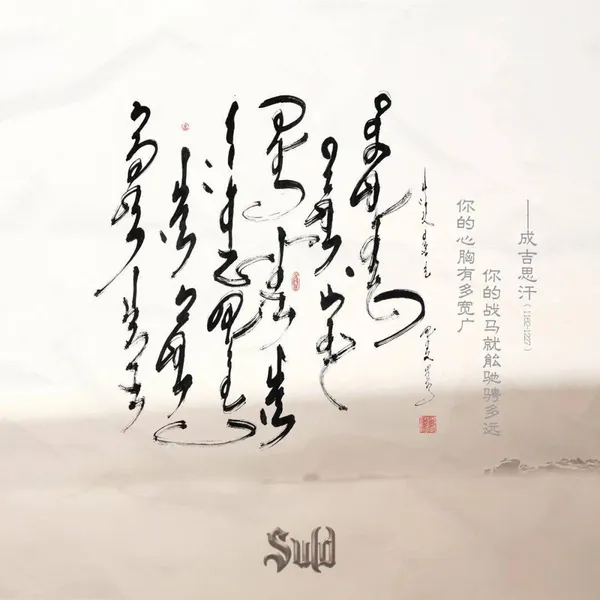酷我新专辑更新!(145-146附文案)
赖老师全新英语专辑——赖世雄教你快速提分系列更新了!
本周更新两篇
145 Lucky Charms
https://kuwo.cn/play_detail/257059237
146 Acquainted with the Night
https://kuwo.cn/play_detail/257059531
在酷我音乐上搜索作者“赖世雄英语”
或专辑《赖世雄生活英语播客》收听!
前来酷我音乐关注作者,第一时间收到更新提醒!
QQ音乐 酷我音乐 酷狗音乐 懒人极速版 搜索“常春藤赖世雄英语”收听更多节目内容
应读者要求,特附上音频的中英对照文案:
Lucky Charms 幸运符的由来
People around the world carry special objects believing that they will bring good luck. Lucky charms have been a part of many cultures throughout history. In ancient Africa, carrying an animal's foot or other parts of a fast-moving creature was supposed to help one flee with the same speed as that animal. The lucky rabbit's foot, commonly found today in the US, was brought to the New World by African slaves. "Mojos," or luck bags, were another African import. They were made up of a number of lucky objects that were put in a bag and then blessed. These luck bags were believed to produce a magical effect on those who carried them.
From Western Europe, we have the shamrock, a common plant found on the rolling hills of Ireland. The followers of St. Patrick consider it a sign of luck. This tradition traveled to America with the Irish immigrants, and today it not only symbolizes good luck, but the Irish people and culture in general. In Eastern Europe, where vampires and merciless rulers once dominated the land, lucky charms gave people peace of mind. Eastern Europeans believed that crosses deflected evil. Wearing a chain of garlic was another way Eastern Europeans warded off evil. This is because during the Middle Ages, garlic was used as an antibiotic. People also believed its purifying effect could carry over to the supernatural world.
Fortunately, good luck charms have evolved into more practical and fashionable forms. Otherwise, those of us needing a bit of luck would still be walking with the weight of a garlic chain around our necks.
世界各地的人都会随身携带某些特殊物品,他们相信这些物品会为自己带来好运。幸运符一直是历史上许多文化的一部分。在古非洲,若身上带着动物的脚,或任何速度敏捷动物身上的其他部分,就可以让人以媲美该动物的速度逃走。今日美国随处可见的幸运兔脚,就是由非洲黑奴带入新大陆的。“护身符”(或“幸运袋”) 则是另一项来自非洲的产物。幸运袋里装有几件幸运物,经过施咒祈福后,人们相信这些幸运袋可以为佩戴者带来神奇的效果。
在西欧则有酢浆草,这是在山丘绵延的爱尔兰常见的植物。圣帕特里克的追随者视酢浆草为幸运的象征。这项传统随爱尔兰移民传入美国,如今它不只象征好运,一般来说也代表爱尔兰人与其文化。而在吸血鬼和暴君曾经肆虐的东欧,幸运符为人民带来内心的安宁。东欧人相信除了十字架能驱邪外,戴大蒜项圈也是避邪的另一种方法,这是中世纪时大蒜被当作抗生素使用之故。人们也相信其净化作用可以在超自然世界里发挥效果。
还好,现在幸运符已经演变成更具实用价值、更流行的形式了。否则,那些想沾点好运的人可能还得戴着一串大蒜在脖子上到处走咧。
Acquainted with the Night 暗夜知音
I have been one acquainted with the night.
I have walked out in rain—and back in rain.
I have outwalked the furthest city light.
I have looked down the saddest city lane.
I have passed by the watchman on his beat
And dropped my eyes, unwilling to explain.
I have stood still and stopped the sound of feet
When far away an interrupted cry
Came over houses from another street,
But not to call me back or say good-by;
And further still at an unearthly height
One luminary clock against the sky
Proclaimed the time was neither wrong nor right.
I have been one acquainted with the night.
──by Robert Frost
In this poem, Frost talks about times when he has felt very alone in the world, and decided to go for a walk at night. These walks, however, only seemed to make him feel even lonelier. Once he went walking in the rain, and another time he went beyond the city limits. On one walk, he saw a watchman on patrol. Frost didn't try to talk with him and explain why he felt so lonely. Perhaps he felt it would be pointless, or maybe he didn't want to burden the stranger with his sadness. He goes on to say that he heard a voice crying out, but once he realized it wasn't for him, he felt even lonelier. He looked up at the moon, which he compared to a clock, and hoped to receive some guidance. He imagined the moon as saying nothing in particular about his situation. Frost concludes by saying that experiences like this have given him a deeper understanding of what nighttime is really like.
我是名暗夜知音。
我曾投入雨中,返自雨中。
我曾走出灯火辉煌的城镇。
我曾俯视过最凄凉的巷道。
我曾遇过巡逻的更夫。
我垂下双眼,不愿多做解释。
我曾伫立,停止足音
当远方断断续续的呼唤
从另一条街的屋宇传来,
不是召唤我,或说再见;
远方离尘的夜空,
唯有高挂天空烁亮的时钟
宣告时间无对错。
我是名暗夜知音。
──罗伯特·弗罗斯特
这首诗中,弗罗斯特谈起自己感到孤绝于世的那段日子,决定外出投身到黑夜中。然而这几次漫步似乎只让他感到更加孤单寂寞。曾在雨中漫步,也曾经远离尘嚣。一次漫游中,他看到一个打更的在巡逻。弗罗斯特没有试着跟他攀谈或解释他为何孤寂。也许他觉得这样没有意义,也可能是他不想让自己的悲愁成为这陌生人的负担。他接着谈到曾经听过有人在大声呼叫,但也知道并非针对自己,所以感到更为寂寞。他抬头仰望明月,把它比作时钟,希望能得到一些指引。他想象着明月对他的情况没多作建议。弗罗斯特作结论说道,这类经历让他对夜晚的真貌有更深层的领悟。











